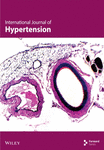Predicting Factors Associated With Uncontrolled Hypertension Using Machine Learning Methods: A Cross-Sectional Study in Western Iran
Abstract
Uncontrolled hypertension is a major public health issue globally. This study aimed to uncover the factors contributing to uncontrolled hypertension using machine learning techniques. In this study, 303 adults with hypertension were included in this cross-sectional study. Data were collected using the Standard Health Literacy Questionnaire. Uncontrolled hypertension was defined as systolic blood pressure (BP) ≥ 140 mmHg and/or diastolic BP ≥ 90 mmHg on both days. Data were analyzed using percentages and chi-square tests. Four machine learning algorithms were employed in this study. The efficacy of these algorithms was assessed using several performance metrics, including accuracy, positive predictive value, sensitivity, F_Score, and the area under the receiver operating characteristic (ROC) curve (AUC). The analyses were performed utilizing Python version 3.8. Of the four models evaluated, logistic regression exhibited the highest accuracy at 75.4% and the greatest AUC at 0.87. According to the logistic regression algorithm, individuals who did not adhere to their treatment had a significantly lower likelihood of having uncontrolled hypertension (OR = 0.17, p value < 0.001). Number of children (OR = 0.44, p < 0.001), physical activity (OR = 0.94, p < 0.001), and health literacy (OR = 0.29, p = 0.10) were all associated directly, and salt intake (OR = 9.60, p < 0.001) was associated inversely with the odds of having uncontrolled hypertension. Based on variable importance analysis, low physical activity was identified as the most important variable, followed by weak health literacy and nonadherence to drug treatment. Factors such as age, duration of hypertension, chronic disease, and salt consumption were also significant. Adherence to treatment, physical activity, health literacy, and salt intake play crucial roles in uncontrolled hypertension. Interventions targeting these factors could help in managing and preventing uncontrolled hypertension.
Conflicts of Interest
The authors declare no conflicts of interest.
Open Research
Data Availability Statement
The raw data that were utilized in this study are available upon request from the corresponding author.




